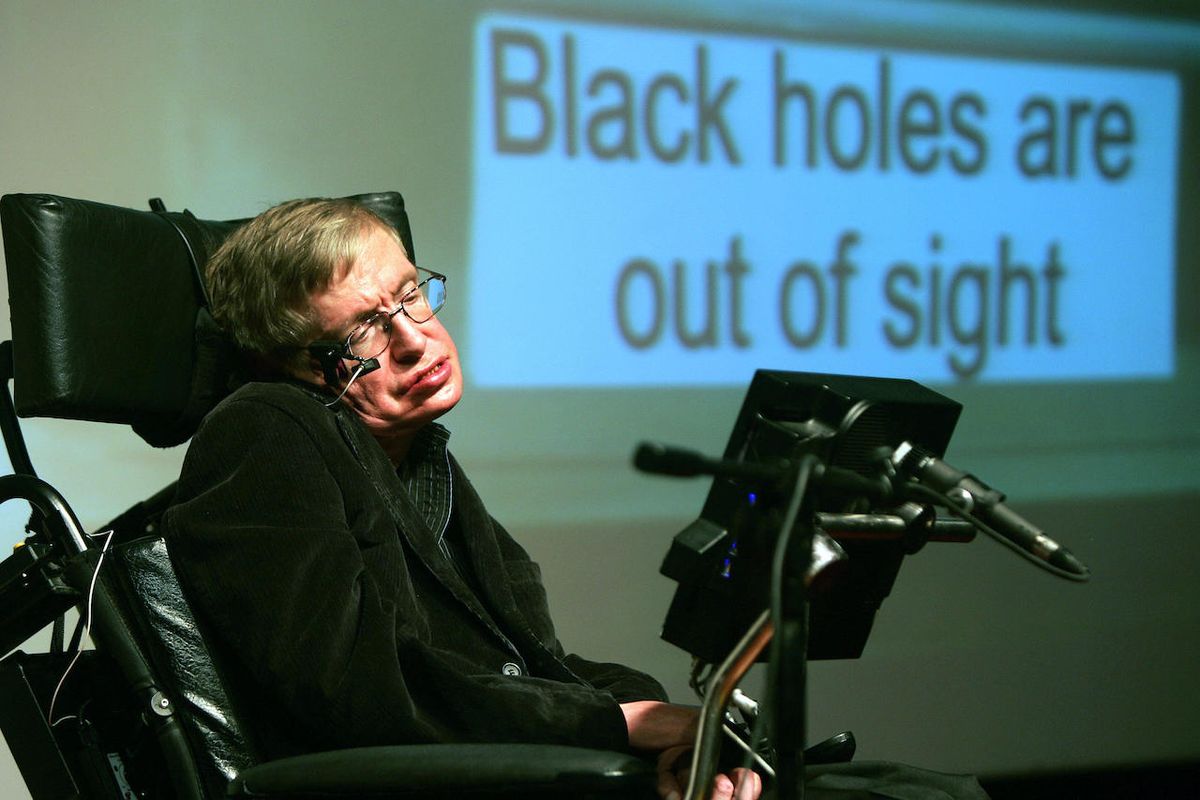
The final proof that Hawking was correct came in 2019, when the Event Horizon Telescope obtained a direct image of the supermassive black hole lurking in the center of giant galaxy Messier 87.
By applying quantum theory — specifically, the idea that pairs of "virtual photons" can spontaneously be created out of nothing — he realized that some of these photons would appear to be radiated from the black hole.Now referred to as Hawking radiation, the theory was recently confirmed in a laboratory experiment at the Technion-Israel Institute of Technology, Israel.
In place of a real black hole, the researchers used an acoustic analog — a "sonic black hole" from which sound waves cannot escape.
Together with Jacob Bekenstein, Hawking proposed that the entropy of a black hole is measured by the surface area of its surrounding event horizon. .
The recent discovery of gravitational waves emitted by merging pairs of black holes shows that Hawking was right again.As Hawking told the BBC after the first such event in 2016, "the observed properties of the system are consistent with predictions about black holes that I made in 1970 ...
the area of the final black hole is greater than the sum of the areas of the initial black holes." More recent observations have provided further confirmation of Hawking's "area theorem.".
The basic properties of the material that went into making the black hole appear to be lost forever; the radiation that comes out tells us nothing about them.Hawking was the first person to explore the theory behind such primordial black holes in depth.It turns out they could have virtually any mass whatsoever, from very light to very heavy — though the really tiny ones would have "evaporated" into nothing by now due to Hawking radiation.
One intriguing possibility considered by Hawking is that primordial black holes might make up the mysterious dark matter that astronomers believe permeates the universe.
Either way, we currently don't have observational tools to detect primordial black holes or to say whether they make up dark matter.
One of the topics Hawking tinkered with toward the end of his life was the multiverse theory — the idea that our universe, with its beginning in the Big Bang, is just one of an infinite number of coexisting bubble universes. .And it seems unlikely that scientists will be able to test his idea any time soon.
To all intents and purposes, time itself — as well as the universe and everything in it — began at the Big Bang.